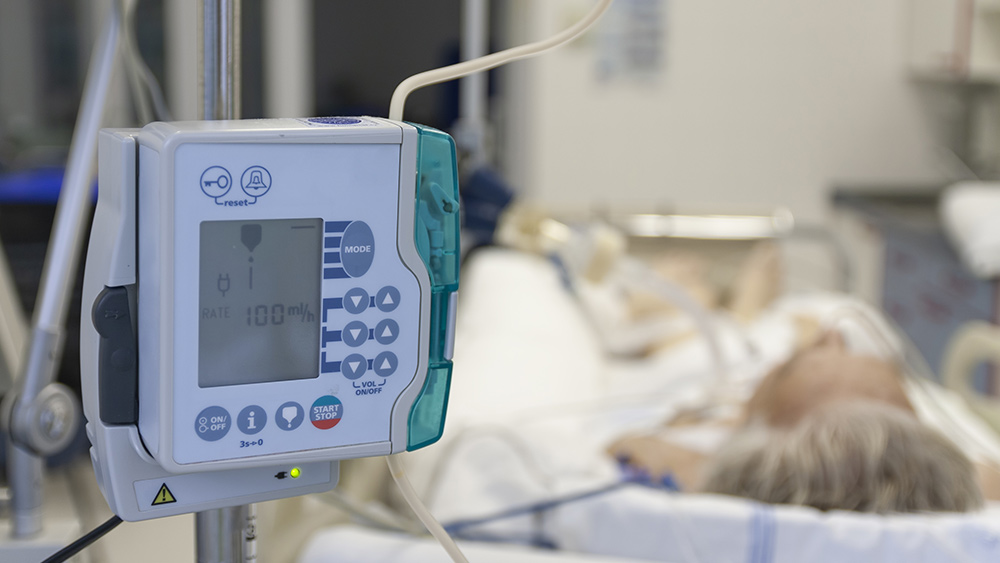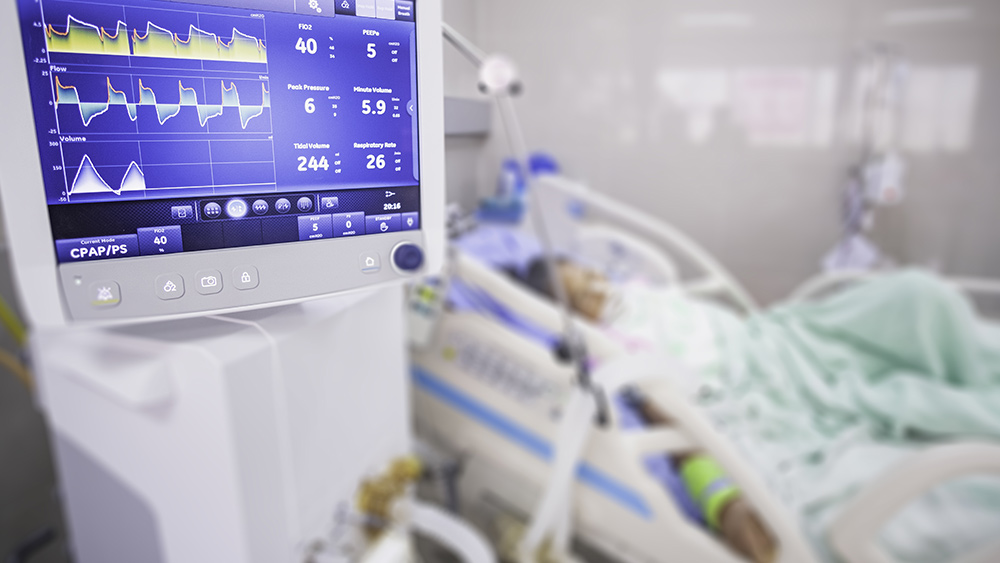Massachusetts hospital reveals 450 patients were possibly EXPOSED to hepatitis, HIV
12/21/2023 / By Zoey Sky

A hospital in Massachusetts has issued a statement announcing that at least 450 patients might have been exposed to hepatitis B, hepatitis C and HIV due to improper administration of IV medications.
Salem Hospital revealed that several patients undergoing endoscopy, including bronchoscopies, colonoscopies and laparoscopies, may have been exposed to viral pathogens over the last few years. The exposure is due to IV medications that were given “in a manner not consistent with our best practice.”
According to spokesperson for Mass General Brigham, which owns Salem Hospital, the hospital is testing for infections like hepatitis B, hepatitis C and HIV, “which are standard tests for a potential exposure of this kind.”
“A small portion of our endoscopy patients, nearly 450 patients, were potentially impacted over a period of roughly two years,” the spokesperson told PEOPLE. However, the hospital was quick to claim that the risk of infection is “extremely small” and that there were no reported infections as of November. (Related: Hidden epidemic: Oral infections and how to prevent them.)
The Massachusetts Department of Public Health has investigated the hospital and worked with an onsite team to address the situation. The agency told the hospital to notify all affected patients in writing about the potential exposure to bloodborne pathogens and “to offer free-of-charge follow-up care, including testing.” Hepatitis and HIV are “common blood-borne pathogenic viruses that often don’t produce symptomatic infection.”
Salem Hospital offered an apology to the people who were potentially exposed.
“We sincerely apologize to those who have been impacted and we remain committed to delivering high-quality, compassionate health care to our community.”
A spokesperson for Mass General Brigham also apologized to those who were impacted, reiterating their “commitment to patient safety and high-quality healthcare.”
Hepatitis and HIV symptoms
According to the Centers for Disease Control and Prevention (CDC), both hepatitis B and C can be treated with antiviral medications, with hepatitis C having a 95 percent cure rate.
However, some health officials have warned that there is no cure for hepatitis B, and chronic sufferers have a greater risk of developing liver cirrhosis, which can lead to liver failure.
Symptoms of both hepatitis B and C include jaundice (the yellowing of the skin or eyes), abdominal pain, dark urine, fatigue, fever, joint pain, loss of appetite, nausea and vomiting.
According to the National Institutes of Health, human immunodeficiency virus (HIV) is not curable but can be managed or treated with antiretroviral drugs, which reduce the viral load in a person’s body.
HIV can lead to acquired immunodeficiency syndrome (AIDS), the most advanced stage of the disease, wherein your immune system is significantly damaged due to the virus.
The CDC warned that those who have HIV have a higher chance of being re-infected with COVID-19 compared with those who do not have HIV.
Similar incidents have occurred before
In 2018, reports revealed that at least 3,000 patients at HealthPlus Surgery Center in New Jersey were potentially exposed to hepatitis B, hepatitis C and HIV.
Sometime after, the New Jersey Department of Health announced that workers at the center were not following the right sterilization protocols and that medical instruments used on patients were not being properly sterilized.
In 2007, the CDC reported that an outbreak of hepatitis C was linked to an endoscopy center in Nevada. The agency also attributed the outbreak to “unsafe injection practices.”
Back in August, Clark Memorial Health in Jeffersonville, Indiana, notified at least 500 patients that they might have been exposed to tuberculosis (TB), a potentially deadly bacterial infection that has killed a significant number of people throughout human history, after a staff member tested positive. Reports revealed that two others later tested positive for the same bacteria.
The Clark County Health Department and the Indiana Department of Health set up special clinics at the Clark County Fairgrounds from August 7 to 10 to test patients who received a notice from the hospital.
Visit Outbreak.news for more articles about infections and other health issues.
Watch the video below to learn about natural treatments for hepatitis.
This video is from the Holistic Herbalist channel on Brighteon.com.
More related stories:
6 Things you can do to protect yourself from viral infections.
Chlorine dioxide proven to kill hospital superbugs, including MRSA.
Sources include:
Submit a correction >>
Tagged Under:
AIDs, big government, chaos, endoscopy, health care, hepatitis B, hepatitis C, HIV, Hospitals, infections, insanity, IV medications, kill vectors, Massachusetts, medical violence, national security, outbreak, outrage, panic, viruses
This article may contain statements that reflect the opinion of the author
RECENT NEWS & ARTICLES
COPYRIGHT © 2017 HEALTH COVERAGE NEWS




















